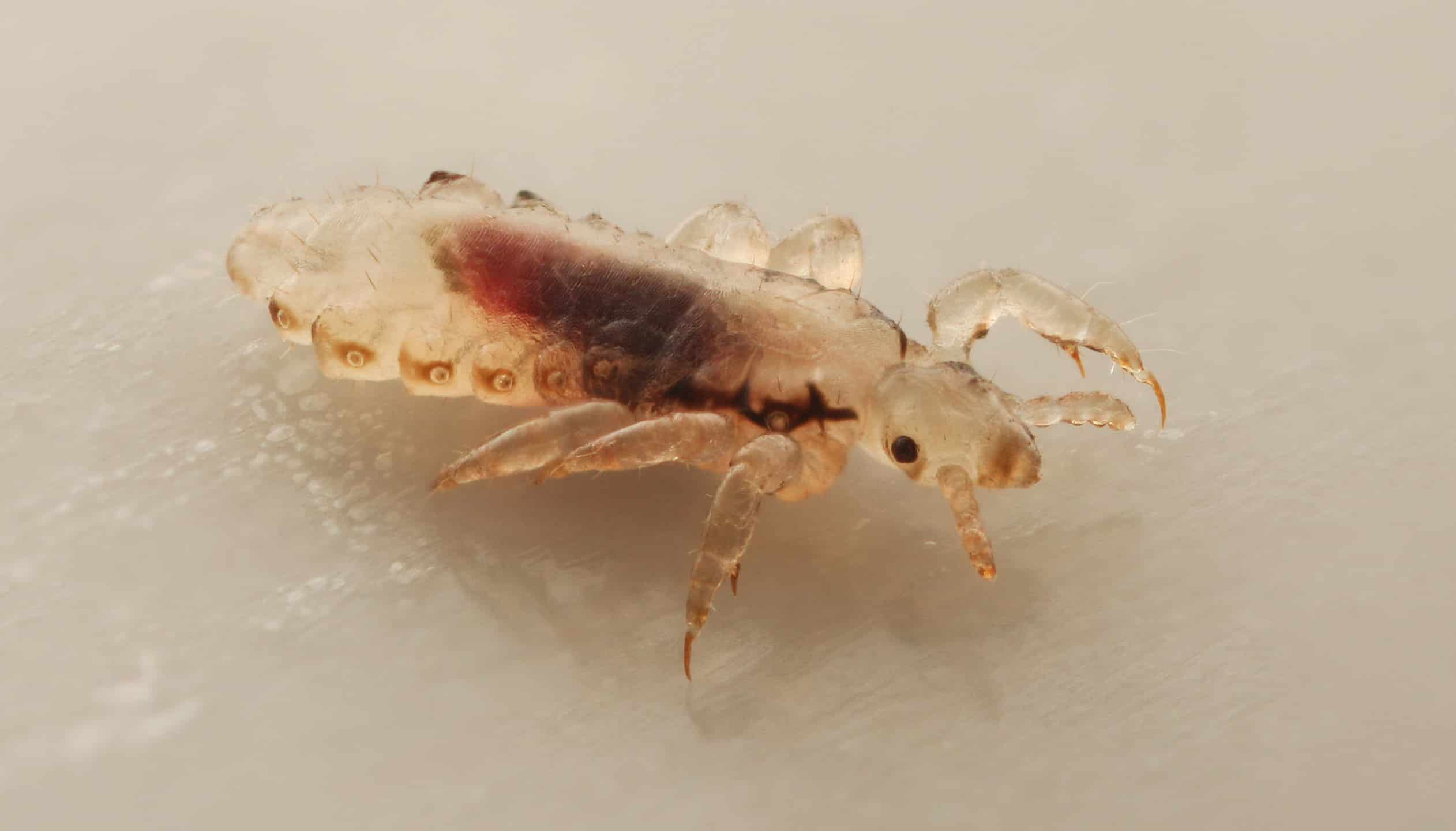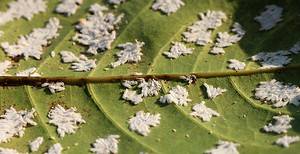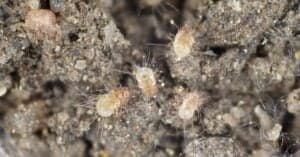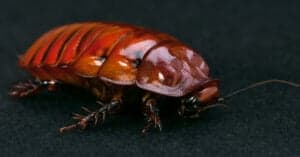Can there be anything worse than coming home from work or school only to notice something itchy on your head? Feelings of intense itchiness and extreme discomfort are unavoidable with an infestation of lice, and these stubborn little insects love living in your hair. With professional removal methods being costly or difficult to obtain, it’s nice to know that there are some smells that lice hate contained in everyday household items.
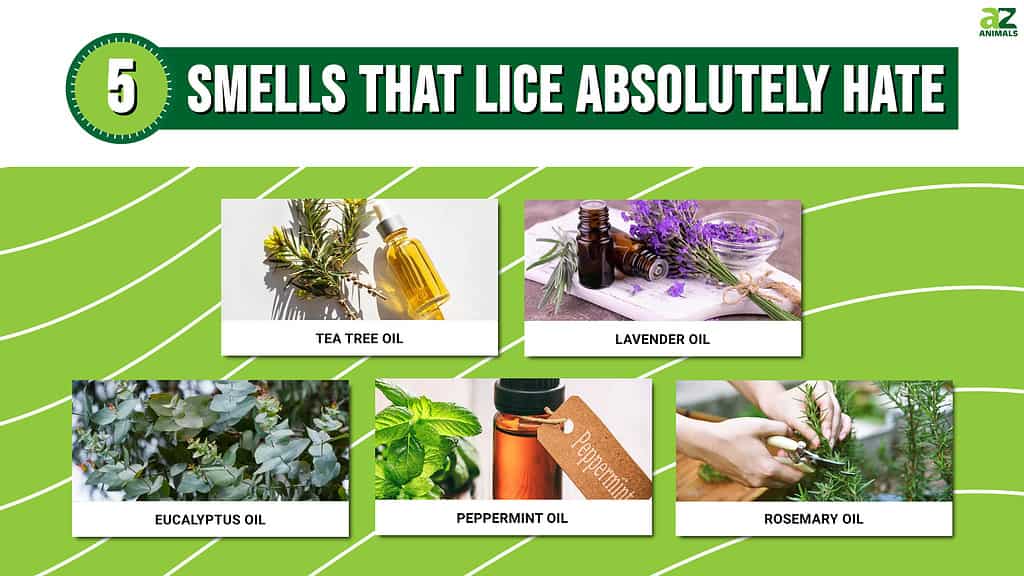
Over the years, there has been a growing interest in natural methods to repel and treat lice, with a focus on using potent but pleasant scents to keep them at bay. Not only do these methods serve as a gentler alternative to harsh chemicals, but they also offer the added benefit of making our heads smell fantastic! So, let’s delve into the holistic method of essential oil use to eliminate these itchy pests.
1. Tea Tree Oil
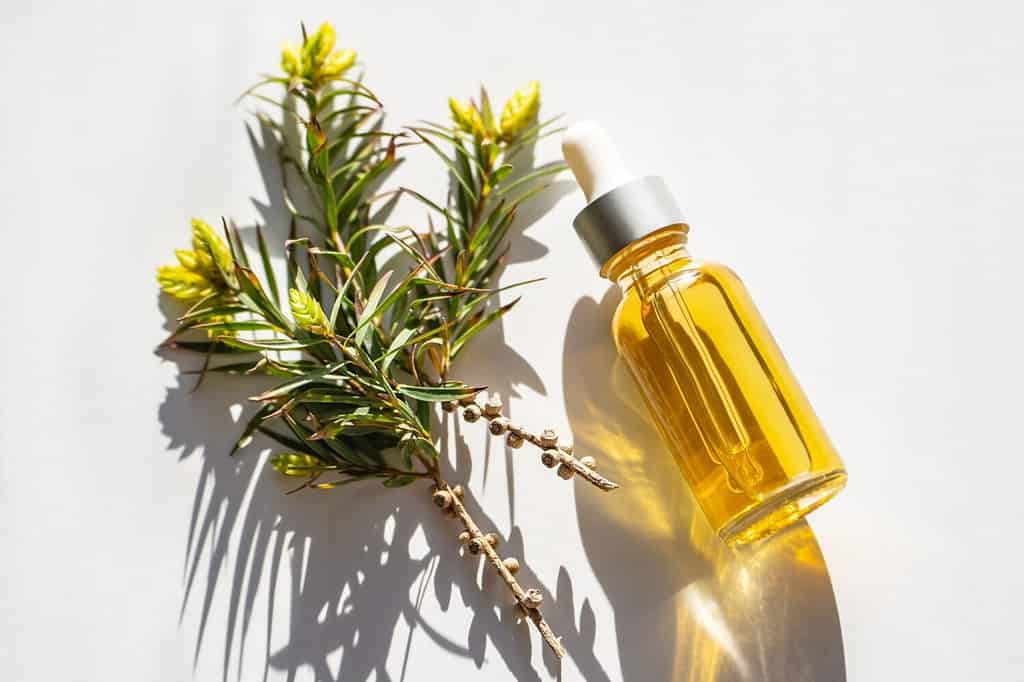
As long as you dilute it, tea tree oil is an excellent way to get rid of lingering lice.
©Iv-olga/Shutterstock.com
Tea tree oil is an essential oil that comes from the continent of Australia. For centuries, indigenous Australians recognized the therapeutic benefits of this oil. Often, it was used for things like wound healing and respiratory relief. They had a lot right, too, as tea tree oil is still known for its strong antiseptic benefits!
Tea tree oil has another benefit, too- it produces smells that lice hate! The blends within tea tree oil aren’t just repellent for lice, either! These components can also be toxic to young lice or nymphs, making their environment unwelcoming for potential infestations.
Remember to be careful when applying this oil, though! Because of its strength, it’s a bad idea to apply it directly to the scalp. Instead, you’ll want to dilute this oil with a less strong one. A common and safe ratio is 3-5 drops of tea tree oil per ounce of other oil. Or, if you wanted, you could even add a few drops of the oil to your regular shampoo.
2. Lavender Oil
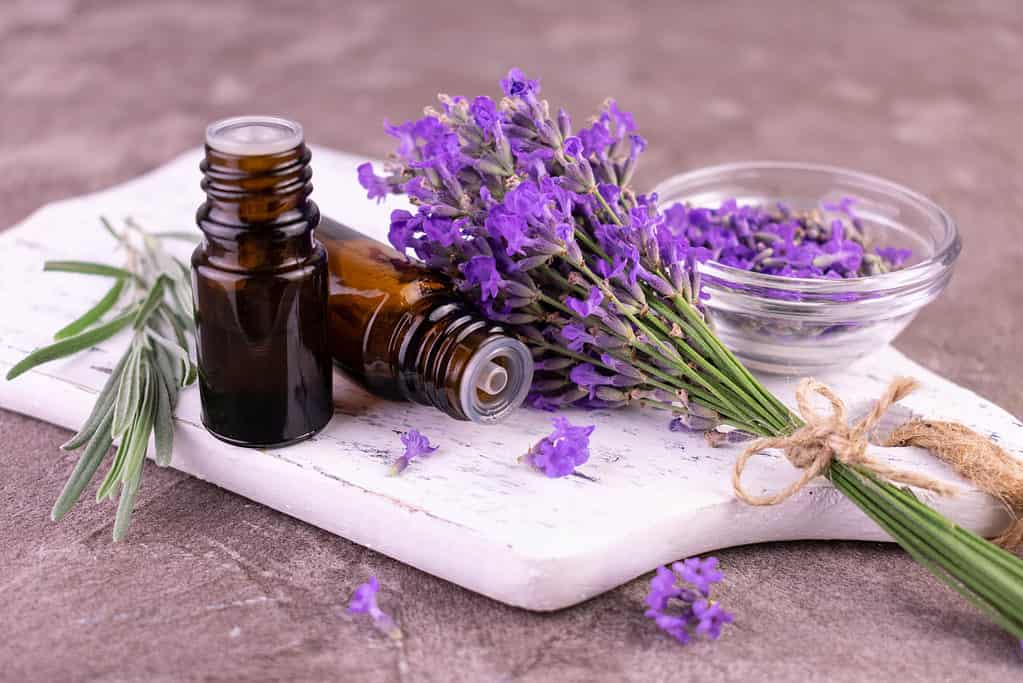
A property in lavender oil called linalool repels lice and other insects strongly.
©iStock.com/Olivka888
Lavender oil is truly a jack-of-all-trades, with dozens of uses spanning across the 2,500 years it has been around. This oil has historically been used in cooking, scenting baths, or treating some illnesses! In the present day, not too much has changed. Lavender oil is still hailed in the aromatherapy world and is known to have top-notch anti-inflammatory properties.
This oil is repellent to insects due to the chemical compounds within it. This can be attributed chiefly to its linalool, which is known to have insecticidal properties. The aroma this creates is just as soothing to humans as it is disgusting to lice. In one study, 97% of the lice tested died when exposed to lavender oil excessively.
Like the other oils on this list, try to dilute it a bit before application to avoid any unnecessary abrasion. If you fancy having an extra good night’s sleep, try waiting to apply it until just before bed.
3. Eucalyptus Oil
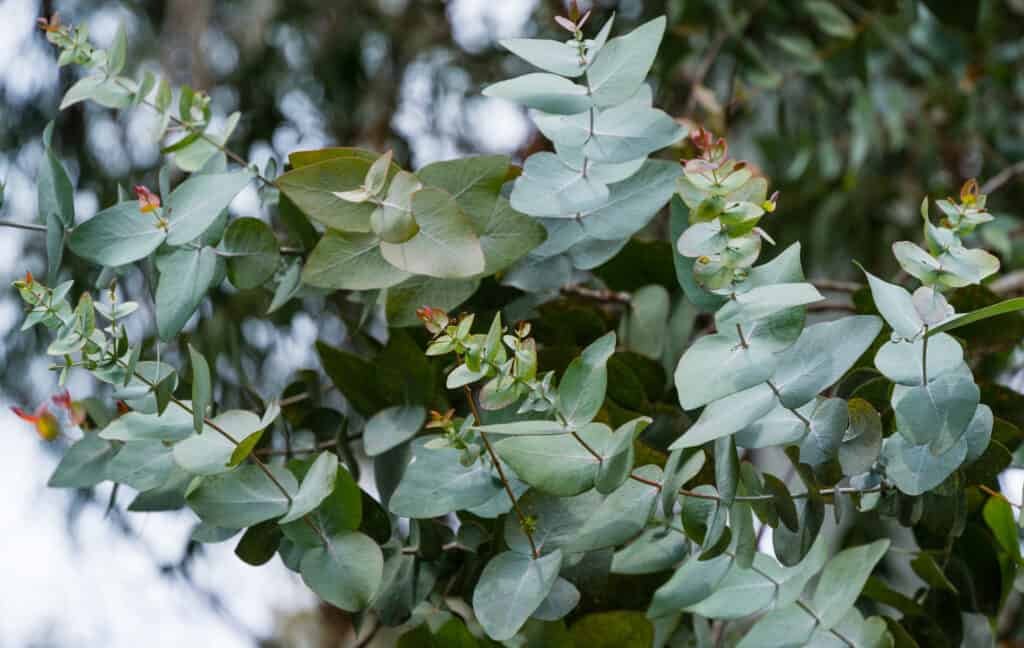
It turns out that Eucalyptus plants aren’t just for feeding koalas- they’re also for preventing lice!
©iStock.com/Marina Denisenko
Eucalyptus trees are primarily known for two things: Their towering presence and the adorable koalas they help support. But, an underrated facet of the Eucalyptus is the oil it produces. This is a particularly potent, camphoraceous essential oil that has been pretty widely recognized for its antiseptic properties.
Lice, and other pests, absolutely cannot stand the minty and slightly woody scent that comes from this oil. This smell can be quite therapeutic for humans, but to insects, it has insecticidal properties that can be incredibly overwhelming. Eucalyptus oil is particularly effective when combined with other repellant oils, so add this to your anti-lice arsenal and try some combinations! Just be gentle because this oil is toxic when ingested.
4. Peppermint Oil
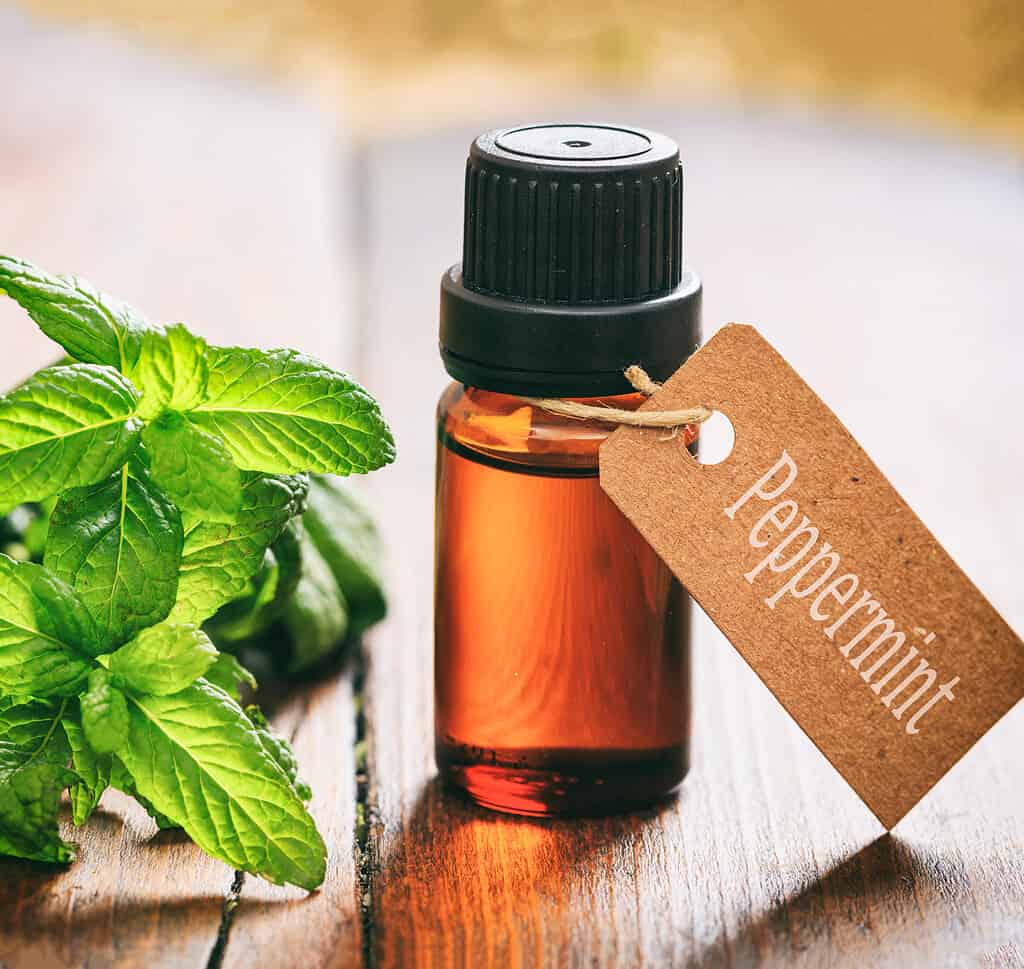
The smell that peppermint oil produces might be refreshing for us, but it’s terrible for pests like lice!
©iStock.com/Rawf8
Peppermint oil is a staple both in the culinary and medicinal worlds. It has a very distinct aroma, with its cool freshness being recognizable from a mile away. Though it originated in Europe and Asia, it has grown increasingly in popularity and is now available worldwide.
As you may or may not know, the primary component of peppermint oil is menthol. Though this is what causes its sensory effects, it also acts as a smell that lice hate. The strong aroma that this oil naturally produces is one that most humans find refreshing. However, to insects, it is far too powerful and overwhelming. Admittedly, most of the evidence for this oil directly getting rid of lice infestations is anecdotal. But still, there is plenty of research that proves that insects, generally speaking, would much rather avoid this strong scent!
The rules for application are generally the same as the rest on this list, with one distinct warning. After applying, make sure to wash your hands thoroughly because peppermint oil can produce a strong burning sensation if it comes nearly or directly into contact with your eyes.
5. Rosemary Oil
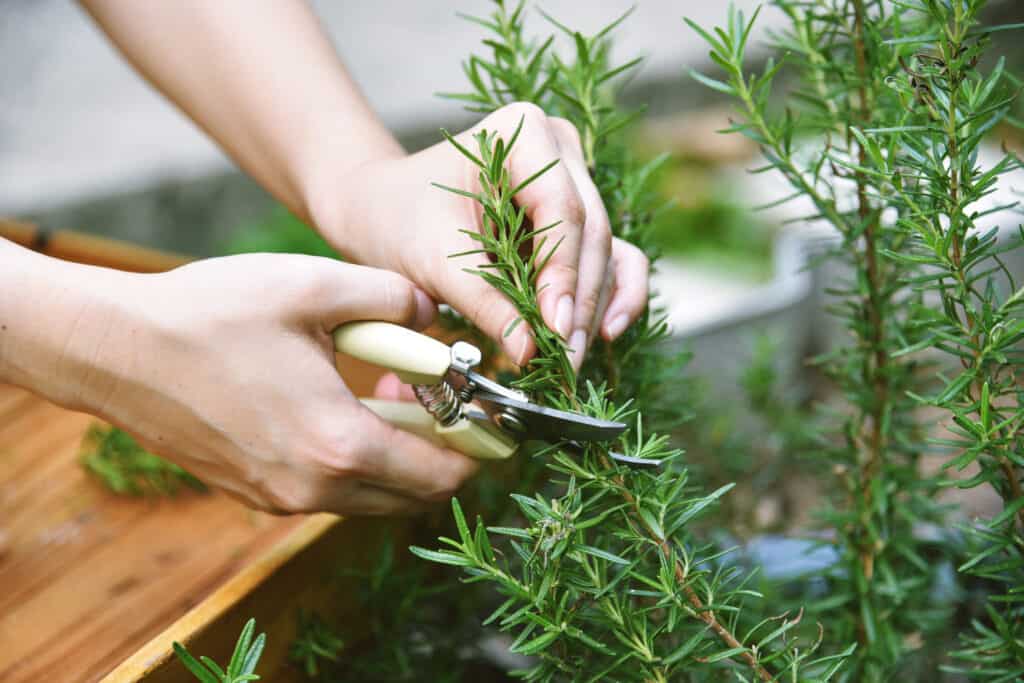
Rosemary isn’t just for cooking, you know! It can also be used to fight pests like lice.
©iStock.com/Artfully79
The rosemary herb from the Mediterranean is known for its needle-like leaves and refreshingly woody aroma. It’s commonly used in aromatherapy and cooking, but it can also have some pretty strong insecticidal effects. While the amount of research specifically looking at rosemary oil’s effects on lice isn’t as extensive as that for some other essential oils, it’s worth noting that rosemary has been traditionally used in many cultures as a natural remedy for lice. If you choose to use this oil to combat a lice infestation, consider combining it with tea tree or lavender oil for the best possible results!
Thank you for reading! Have some feedback for us? Contact the AZ Animals editorial team.

